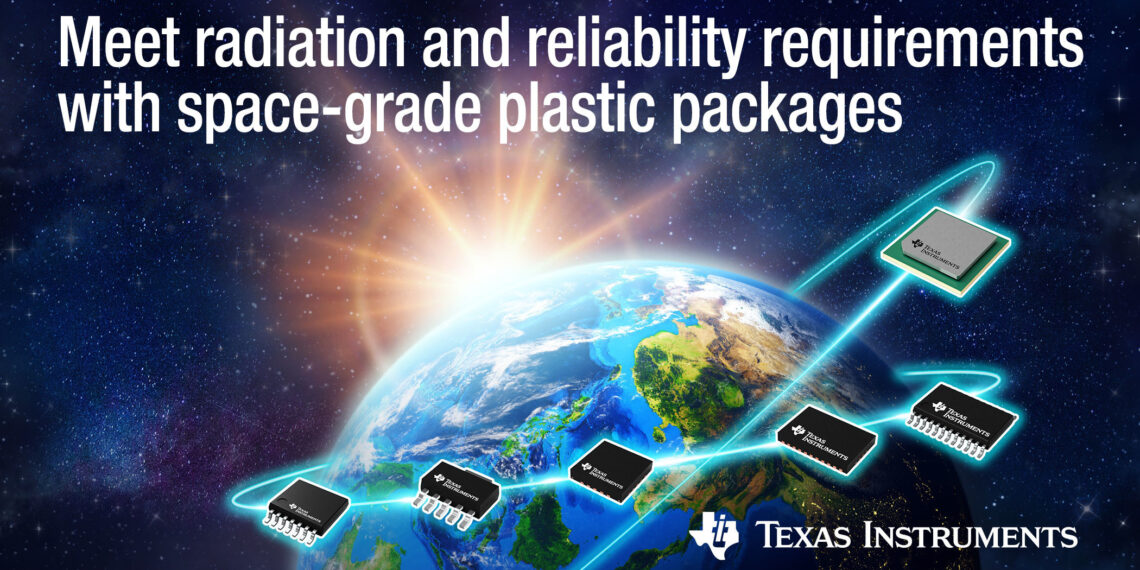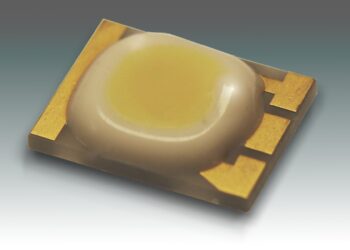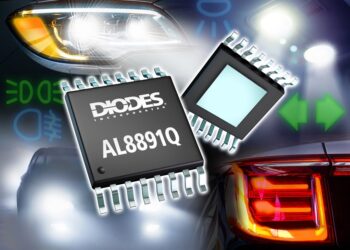Texas Instruments (TI) (Nasdaq: TXN) today announced an expansion in its portfolio of space-grade analog semiconductor products in highly reliable plastic packages for a diverse range of missions. TI developed a new device screening specification called space high-grade in plastic (SHP) for radiation-hardened products and introduced new analog-to-digital converters (ADCs) that meet the SHP qualification. TI also introduced new product families to the radiation-tolerant Space Enhanced Plastic (Space EP) portfolio. Compared to traditional ceramic packages, plastic packages offer a smaller footprint that enables designers to reduce system-level size, weight and power, and thus help reduce launch costs.
In the past, space applications and programs used hermetically sealed, ceramic Qualified Manufacturers List (QML) Class V devices to ensure reliability. Today, applications like those in new space, designed to increase commercial access to space programs through short-term missions in low Earth orbit (LEO), are helping expand communication and connectivity. For new space applications, there is a growing need for smaller components that help reduce system size and weight – and therefore lower the cost required to launch an application into space. Plastic substrate ball-grid array (PBGA) and plastic-encapsulated devices offer an alternative to traditional space semiconductor packages.
TI’s SHP specification indicates integrated circuits (ICs) that meet the rigorous design requirements of deep space missions with extremely harsh environmental conditions. The SHP specification includes both PBGA and plastic-encapsulated packages for radiation-hardened semiconductors. The 10-mm-by-10-mm-by-1.9-mm ADC12DJ5200-SP and ADC12QJ1600-SP ADCs in flip-chip BGA SHP packages are the first products from TI that meet the SHP specification. These ADCs help enable designs as much as seven times smaller than those using equivalent ceramic-packaged devices, maximize data communication speeds with SerDes rates up to 17.1 Gbps, and reduce thermal resistance.
TI’s Space EP portfolio is the industry’s largest plastic, radiation-tolerant power management and signal-chain portfolio, with devices specifically designed for smaller, high-volume LEO satellite applications. Space EP devices can help save as much as 50% board space compared to traditional ceramic packages, and deliver high-performance power supplies with rail-to-rail input/output operation. The TPS7H5005-SEP family of pulse-width modulation (PWM) controllers are the newest products in TI’s Space EP portfolio, and support multiple power-supply topologies and field-effect transistor (FET) architectures. TPS7H5005-SEP PWM controllers minimize power loss through synchronous rectification, enabling at least 5% higher power efficiency compared to equivalent devices.
With over 60 years in the space market, TI continues to develop radiation-hardened and radiation-tolerant products and packaging that enable designers to meet mission-critical requirements with increased power density, performance capabilities and reliability.








